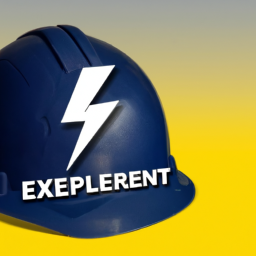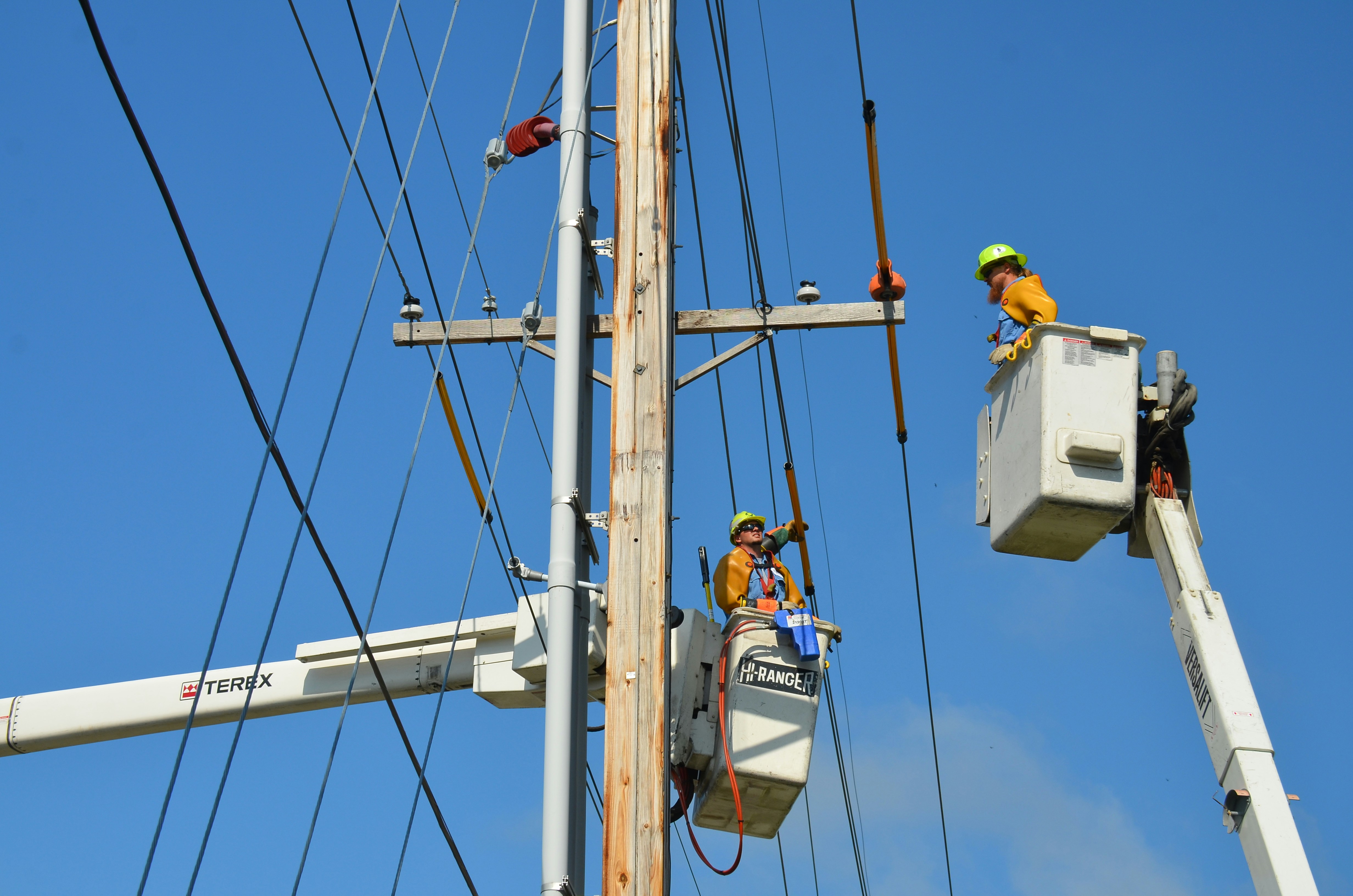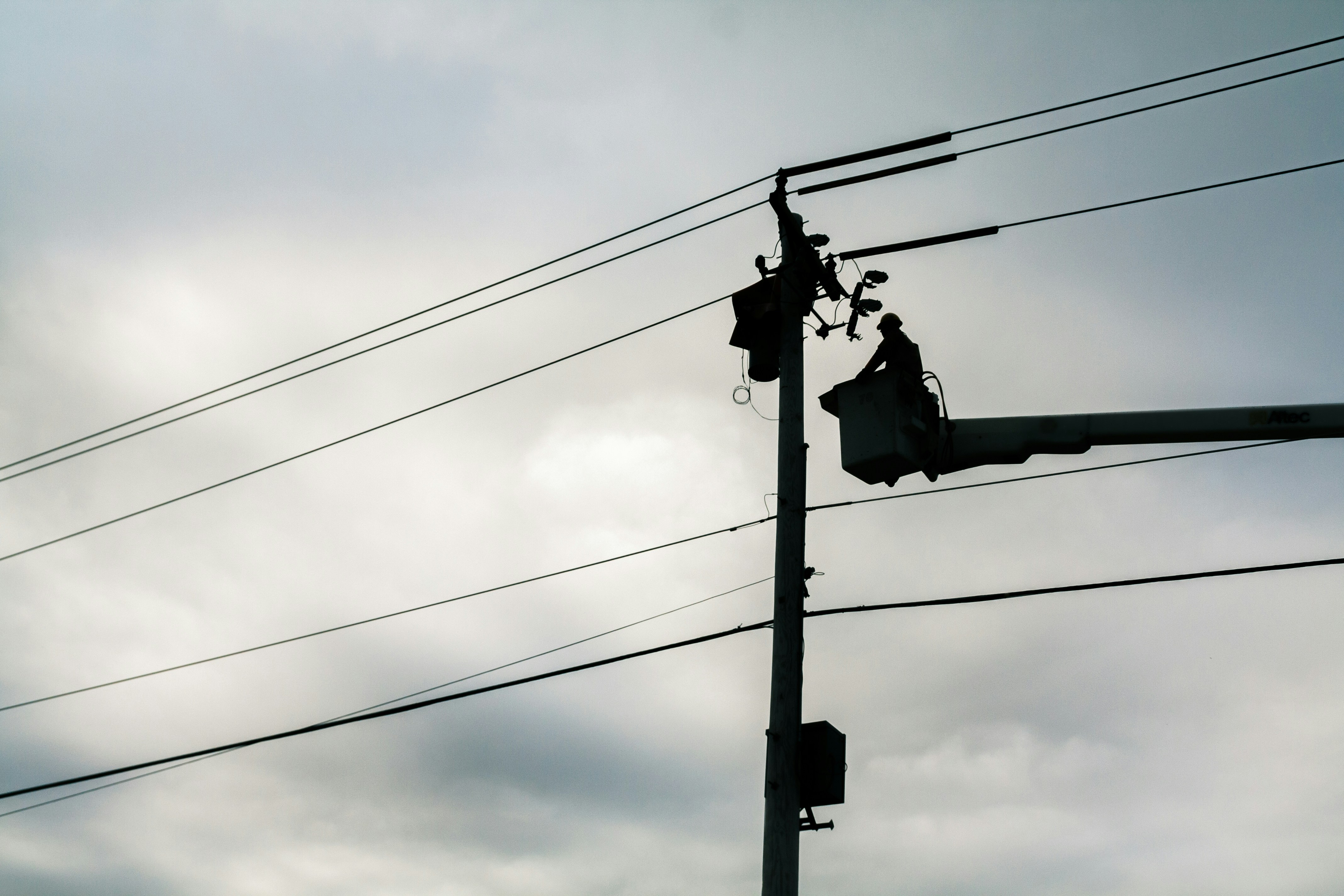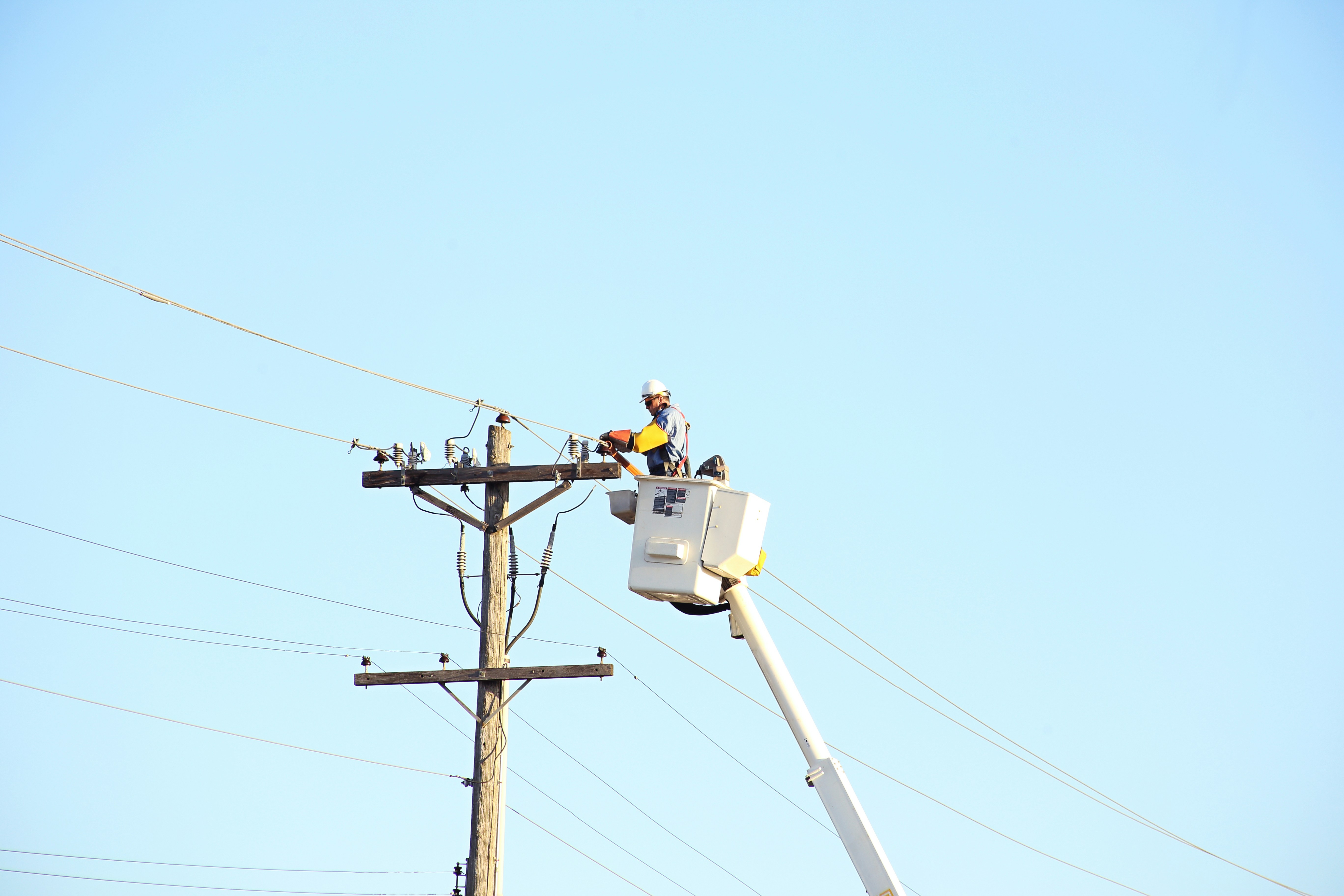In this article, we will explore the various jobs and experiences that can help individuals pursue a career as a lineman. Whether you are currently in the industry or considering a switch, we will discuss the valuable skills and knowledge that can set you on the path to becoming a successful lineman. From electrical work to construction experience, we will delve into the qualifications and requirements needed for this rewarding profession. So, if you’re interested in working as a lineman, keep reading to learn more!
Introduction to Working as a Lineman
Working as a lineman in the power industry can be a physically demanding yet rewarding career. Linemen play a crucial role in ensuring that electricity is safely and efficiently distributed to homes, businesses, and industries. To excel in this line of work, individuals need to possess the necessary knowledge, skills, and experience. In this article, we will outline the job and experience requirements for becoming a lineman, as well as discuss the various paths that can lead individuals to this profession.
Definition of a Lineman
A lineman, also known as a power line technician or a power line worker, is a skilled professional who installs, repairs, and maintains electrical power systems. They work on both overhead power lines and underground cables to ensure uninterrupted electricity supply. Linemen are responsible for performing a range of tasks, including setting up and dismantling power lines, conducting inspections, troubleshooting electrical issues, and responding to power outages.
Importance of Linemen in the Power Industry
Linemen are essential to the smooth operation and reliability of the power grid. They have a direct impact on the lives of millions of people, as their work ensures that electricity is available when needed. Without skilled linemen, power outages could occur more frequently and last longer, leading to inconvenience, economic losses, and potential safety hazards. Therefore, the role of a lineman is crucial in maintaining the functionality and stability of the power industry.
Overview of the Job and Experience Requirements
To become a lineman, certain qualifications and experience are necessary. Let us delve into the educational background and training necessary to embark on a career in this field.
High School Diploma or Equivalent
A high school diploma or equivalent is the minimum educational requirement for becoming a lineman. High school courses in mathematics, physics, and electronics can provide a solid foundation for understanding electrical concepts. Additionally, proficiency in technical subjects such as metalworking, woodworking, and drafting can be beneficial in preparing individuals for the physical and mechanical aspects of the job.
Technical or Vocational Training Programs
Completing a technical or vocational training program focusing on electrical systems and power distribution is another viable option for aspiring linemen. These programs provide a comprehensive understanding of electrical theory, safety practices, and practical skills required for the job. Students learn about electrical codes, blueprint reading, transformers, and other essential topics. Such programs often include hands-on training, allowing individuals to gain valuable experience before entering the workforce.
Apprenticeships and On-the-Job Training
Another common path to a career as a lineman is through apprenticeships and on-the-job training. Many utility companies, electrical contractors, and trade unions offer apprenticeship programs that combine classroom instruction with practical experience. These programs typically last between three and four years, during which apprentices work alongside experienced linemen to develop their skills. Apprenticeships provide a comprehensive learning experience, covering everything from climbing poles and operating equipment to electrical maintenance and repair.
Physical Fitness and Strength Requirements
Working as a lineman demands a high level of physical fitness and strength due to the demanding nature of the job. Let us explore the physical requirements and challenges that linemen face.
Physical Demands of the Job
Being a lineman involves physically demanding tasks such as climbing poles, carrying heavy equipment, and working in various weather conditions. Linemen need to possess excellent stamina, dexterity, and hand-eye coordination to perform their duties safely and efficiently. The ability to work at heights and in confined spaces is crucial, as linemen often find themselves suspended high above the ground while working on power lines or in confined spaces such as manholes.
Climbing and Working at Heights
One of the most distinctive aspects of a lineman’s job is the need to climb utility poles. Linemen must be comfortable and skilled at working at heights, as they often have to ascend poles using climbing gear and work on power lines suspended in the air. This requires a combination of physical strength, balance, and mental focus. Safety precautions and proper training are essential to prevent accidents and ensure the well-being of linemen.
Ability to Lift Heavy Equipment
Linemen often handle heavy equipment and tools, such as power line wires, transformers, and safety gear. They need to possess enough physical strength to lift and maneuver these objects safely. Proper lifting techniques and physical conditioning are crucial to minimize the risk of muscle strain, back injuries, and other physical ailments that can result from the repetitive nature of the work.
Electrical Knowledge and Skills
An in-depth understanding of electrical systems and protocols is imperative for linemen to perform their job effectively and safely. Let’s explore the knowledge and skills linemen must possess in the electrical domain.
Understanding of Electrical Systems
Linemen need to have a solid understanding of electrical systems, including the basics of electricity, distribution networks, and safety regulations. They must know how to read electrical diagrams and blueprints to identify problems and locate specific components. Familiarity with electrical codes and standards is essential to ensure compliance and maintain safety while working on power lines.
Knowledge of Safety Protocols
Safety is of utmost importance for linemen, as they work with high-voltage electricity. Linemen must possess a deep understanding of safety protocols and regulations to protect themselves and others from potential hazards. They need to be well-versed in using personal protective equipment (PPE) correctly and following safety procedures to minimize the risk of electrical shock, burns, and falls.
Skills in Testing and Troubleshooting
Linemen must have strong analytical and problem-solving skills to diagnose and troubleshoot electrical issues. They should be proficient in using various testing equipment, such as voltmeters and oscilloscopes, to measure electrical currents, diagnose faults, and ensure the integrity of power transmission. The ability to interpret test results accurately and make informed decisions is crucial in ensuring the reliable operation of electrical systems.
Experience in Electrical or Construction Trades
Previous experience in electrical or construction trades can provide a solid foundation for a career as a lineman. Let us discuss the relevance of these experiences in preparing individuals for this profession.
Previous Work in Electrical Industry
Having prior experience in the electrical industry, such as working as an electrician or an electrical technician, can be highly advantageous when pursuing a career as a lineman. This experience provides individuals with a deeper understanding of electrical systems, wiring practices, and safety protocols. It also exposes them to various aspects of electrical work, enhancing their troubleshooting and problem-solving skills.
Experience in Construction or Maintenance
Experience in construction or maintenance work can also be valuable in preparing individuals for a lineman career. Construction work provides hands-on experience with tools, equipment, and physical labor, which are transferable skills that linemen utilize daily. Maintenance work enhances individuals’ attention to detail and their ability to identify potential issues before they escalate. The experience gained in these fields can easily be applied to the tasks linemen carry out on a regular basis.
Knowledge of Power Grid Operations
Developing a fundamental understanding of power grid operations is beneficial for aspiring linemen. This knowledge encompasses how electricity is generated, transmitted, and distributed. Familiarity with components such as substations, transformers, and circuit breakers can help linemen navigate their work more efficiently. Understanding the interconnectedness of the power grid allows them to identify potential issues and contribute to the overall reliability and stability of the electrical system.
Licenses and Certifications
To work as a lineman, certain licenses and certifications are often required. Let us explore the most common ones in this field.
Electrician License
In many jurisdictions, linemen are required to hold an electrician license. This license demonstrates that individuals have met the necessary educational requirements and passed a licensure examination, ensuring their competence and knowledge in electrical work. Gaining an electrician license generally involves completing an accredited electrical training program and accumulating a certain number of practical work hours.
Commercial Driver’s License (CDL)
As linemen often need to operate commercial vehicles, obtaining a Commercial Driver’s License (CDL) is crucial. This license ensures that linemen have the necessary skills and knowledge to operate large utility trucks and other vehicles safely. CDL requirements may vary depending on the state, with specific tests and endorsements needed for certain types of vehicles or cargo.
First Aid and CPR Certification
Given the inherent risks involved in working with electricity, linemen must also possess certifications in first aid and cardiopulmonary resuscitation (CPR). These certifications equip linemen with the skills and knowledge to respond effectively to medical emergencies that may occur on the job. First aid and CPR training provide linemen with the confidence and capability to administer assistance until professional medical help arrives.
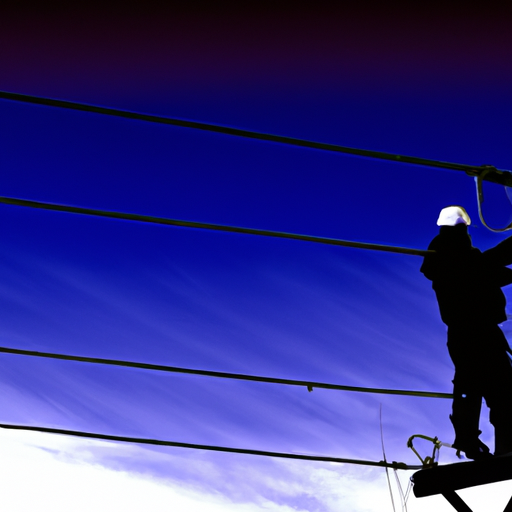
Problem-Solving and Decision-Making Skills
Being a lineman often involves encountering complex situations that require quick thinking and effective decision-making. Let’s explore the problem-solving and decision-making skills linemen must possess.
Ability to Analyze Complex Situations
Linemen frequently encounter complex electrical issues or power outages that require careful analysis and problem-solving. They must be able to quickly evaluate the situation, accurately diagnose the problem, and develop a plan of action. The ability to break down complex issues into manageable components allows linemen to effectively resolve technical challenges and restore power safely and efficiently.
Critical Thinking and Troubleshooting Skills
Critical thinking skills are necessary for linemen to approach problems from multiple angles and evaluate potential solutions. Strong troubleshooting skills enable linemen to identify the root cause of an issue, whether it is a faulty connection, damaged equipment, or a systemic problem within the power grid. By employing critical thinking and troubleshooting skills, linemen can determine the best course of action to rectify the problem effectively.
Aptitude for Making Quick and Effective Decisions
Linemen often face time-sensitive situations that require them to make quick and effective decisions while prioritizing safety. They need to assess the risks and benefits of different options, considering the potential impact on themselves, their team, and the general public. Displaying sound judgment and adaptability is crucial in ensuring that they can make informed decisions under pressure and handle unforeseen challenges that may arise on the job.
Communication and Teamwork Abilities
Linemen work closely with other team members, including supervisors, coworkers, and customers. Effective communication and teamwork are essential for the smooth execution of tasks and ensuring a safe work environment.
Effective Verbal and Written Communication
Clear and concise communication skills are necessary for linemen to convey technical information accurately. They need to effectively communicate with team members to ensure coordinated efforts, share updates, and follow safety protocols. Linemen often interact with customers, explaining the nature of their work, addressing concerns, and providing information about power outages and service restoration timelines. Strong written communication skills are important for documenting work activities, creating reports, and keeping accurate records.
Collaboration with Crew Members
Linemen commonly work as part of a crew, collaborating with other linemen to complete tasks efficiently and safely. The ability to work well in a team environment, following instructions and providing valuable input, is vital for accomplishing objectives. Linemen must be able to trust and rely on their fellow team members, taking responsibility for their tasks while maintaining open lines of communication.
Customer Service Skills
Interacting with customers in a professional and courteous manner is crucial for linemen. They often find themselves in customer-facing situations, where they must address inquiries, explain work procedures, and provide updates on service restoration. Strong customer service skills facilitate positive interactions and help build trust and confidence in the services provided by linemen.
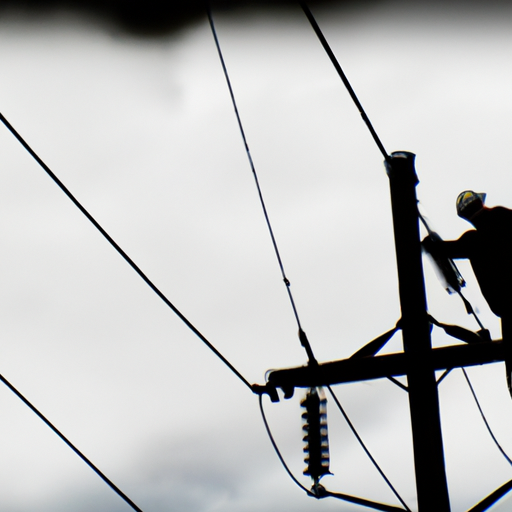
Safety Mindset and Attention to Detail
Safety is paramount in the lineman profession. Maintaining a safety mindset and paying meticulous attention to detail are essential for protecting oneself and others from potential hazards.
Strict Adherence to Safety Regulations
Linemen must adhere to strict safety regulations and protocols to mitigate the risks associated with their job. They need to follow established safety procedures, use appropriate personal protective equipment (PPE), and consistently apply best practices. By prioritizing safety at all times, linemen protect themselves, their teammates, and the general public from electrical accidents and potential injuries.
Attention to Detail in Equipment Inspection
Linemen are responsible for inspecting and maintaining equipment to ensure its proper functioning and reliability. Regular inspections involve examining power lines, transformers, breakers, and other components for signs of wear, damage, or potential hazards. Attention to detail is key during these inspections, as any overlooked issues can lead to malfunctions or safety hazards. By conducting thorough inspections and promptly addressing any concerns, linemen contribute to the overall stability and safety of the electrical system.
Proactive Approach to Preventing Accidents
A proactive approach to accident prevention is vital in the lineman profession. Linemen should constantly evaluate their work environment, identifying potential hazards and taking appropriate preventive measures. By being vigilant and proactive, linemen can actively minimize risks and create a safer work environment for themselves and their teammates.
Conclusion
Working as a lineman requires a comprehensive set of skills, knowledge, and experience. From the educational background and physical fitness required to the technical expertise and problem-solving abilities, linemen play a critical role in the power industry. By understanding and fulfilling the job and experience requirements outlined in this article, individuals can embark on a fulfilling and rewarding career as a lineman. The opportunities for career growth, along with the rewards and challenges encountered in this profession, make it a viable choice for those willing to pursue a path dedicated to ensuring reliable electrical power for all. So, if you possess the necessary skills, physical fitness, and dedication to safety, working as a lineman can be a highly worthwhile and fulfilling career choice.




